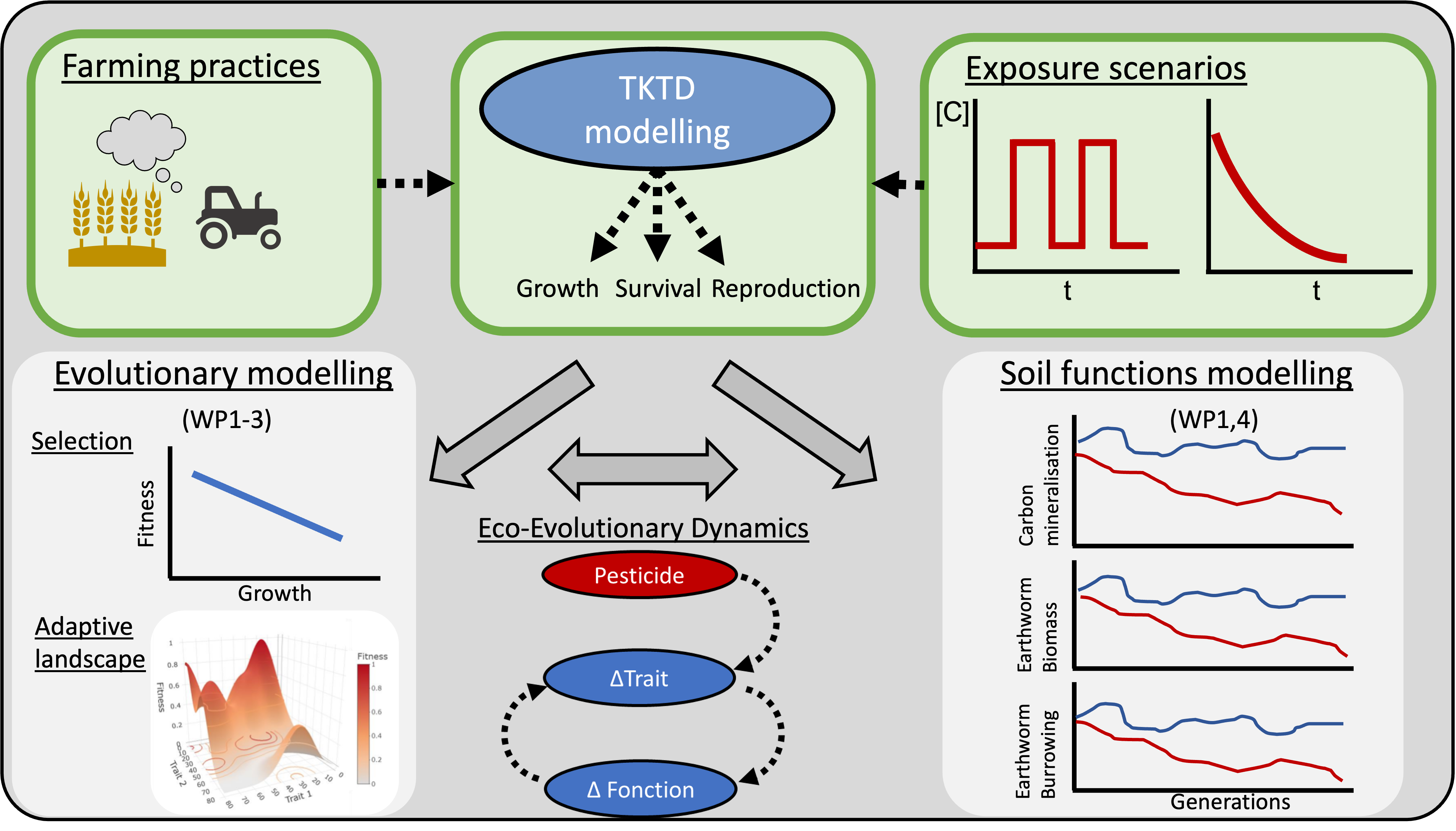
EEWORM: Eco-Evolutionary dynamics in earthWORMs exposed to pesticide mixtures
Objectives
The objectives of EEWORM are three-folds: (i) to test the effects of pesticide mixture exposure on life-history variation in the endogeic earthworm Aporrectodea caliginosa; (ii) to estimate the relative influence of selective pressures vs. transgenerational plasticity induced by a pesticide mixture and (iii) derive the consequences of pesticide exposure on soil functions using individual-based model approachesfor eco-evolutionary dynamics
Summary
Soil biodiversity is an important reservoir of ecosystem services and is threatened by the wide-scale use of pesticides. Evolution plays a central role in how populations persist because ecological change and evolutionary processes interact in eco-evolutionary feedbacks. These feedbacks can decrease extinction risk by allowing rapid adaptation to environmental stressors but depend on the population density and its genetic makeup. Despite evidence that soil fauna can adapt to pesticide exposure, key questions on the speed at which adaptation occurs and the costs for ecosystem functions remain unanswered. EEWORM will investigate eco-evolutionary dynamics in populations of the earthworm Aporrectodea caliginosa, a major soil engineer in agricultural systems, exposed to a pesticide mixture representative of French agricultural soils.
| Date | Title | Author | |
|---|---|---|---|

|
Mar 11, 2024 | Newsletter #1 | |

|
Mar 12, 2024 | Newsletter #2 |

